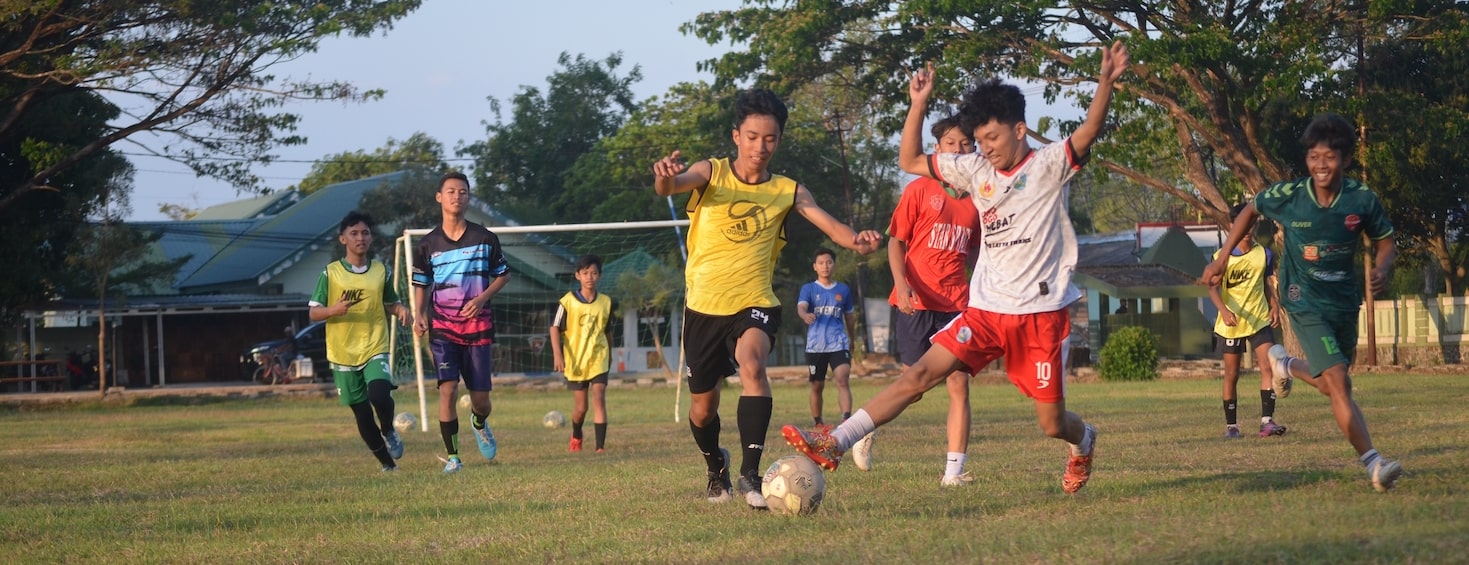Whether you're a seasoned coach or just starting out, this comprehensive guide will provide you with valuable insights to enhance your coaching skills.
1. Soccer Drills for Player Development
One of the cornerstones of effective soccer coaching is the incorporation of purposeful drills. These exercises not only improve specific skills but also promote teamwork and tactical awareness. Here are some key drills to consider:
-
Passing and Receiving Drills: Focus on improving players' ability to deliver accurate passes and control the ball effectively.
-
Dribbling Drills: Enhance players' close ball control and agility with a variety of dribbling exercises.
-
Shooting Drills: Develop players' shooting accuracy, power, and technique to increase their goal-scoring capabilities.
2. Coaching Techniques for Success
Successful soccer coaching goes beyond just knowing the game. It involves effective communication, motivation, and the ability to adapt to different situations. Here are some coaching techniques to consider:
-
Player Communication: Establish clear lines of communication to ensure that players understand their roles and responsibilities on the field.
-
Positive Reinforcement: Recognize and reward players for their efforts and achievements, fostering a positive and motivated team environment.
-
Adaptability: Be prepared to adjust strategies and tactics based on the strengths and weaknesses of your team and the opposition.

3. Player Development and Tactical Training
Player development is at the core of any successful soccer team. Coaches play a crucial role in shaping players into well-rounded athletes. Here are some strategies for effective player development:
-
Individualized Training Plans: Tailor training sessions to cater to the specific needs and strengths of each player.
-
Tactical Formations: Implement formations that best utilize the skills and attributes of your players, while also exploiting the weaknesses of the opposition.
-
Game Analysis: Study matches to identify areas of improvement and to refine tactical approaches for future games.
4. Youth Soccer Coaching and Skill Development
Youth soccer coaching requires a special focus on skill development and creating a fun and engaging learning environment. Here are some key considerations for coaching youth players:
-
Age-Appropriate Drills: Design drills that are suitable for the age group you are coaching, focusing on fundamental skills like dribbling, passing, and shooting.
-
Emphasis on Technique: Place a strong emphasis on teaching proper technique from an early age to establish a solid foundation for future growth.
-
Encourage Creativity: Foster a creative and imaginative playing style to allow young players to express themselves on the field.


Improve Your GameJust 1.99 p/m
Exclusive drills and sessions, get involved today!
- 100’s of Drills
- Coach to Camera Videos
- Sessions from Pro’s
- Industry Leading Advice
5. Team Management and Leadership in Coaching
Team management is a critical aspect of soccer coaching that involves organizing practices, games, and effectively handling team dynamics. Here are some tips for successful team management:
-
Organization: Plan and structure practices to maximize efficiency and focus on specific areas of improvement.
-
Motivation: Inspire and motivate players to give their best effort both in training sessions and during matches.
-
Conflict Resolution: Address any conflicts or issues within the team promptly and impartially to maintain a positive team atmosphere.
-
Leadership Skills: Demonstrate strong leadership qualities by setting a positive example for players, showing confidence in decision-making, and maintaining a calm demeanor in high-pressure situations.
6. Soccer Psychology and Mental Conditioning
Understanding the psychological aspects of the game is crucial for effective coaching. A player's mental state can greatly impact their performance on the field. Here are some considerations for soccer psychology:
-
Confidence Building: Instill confidence in players by acknowledging their strengths and providing constructive feedback to improve weaknesses.
-
Mental Toughness: Help players develop resilience and the ability to stay focused under pressure, especially in critical moments of a game.
-
Goal Setting: Encourage players to set both short-term and long-term goals to help them stay motivated and track their progress.
-
Visualization and Mindfulness: Introduce techniques like visualization and mindfulness to help players stay calm, focused, and mentally prepared for matches.

7. Set Pieces and Game Strategies
Set pieces play a significant role in soccer, and a well-executed strategy can make a difference in crucial moments of a match. Here are some aspects to consider:
-
Corner Kicks and Free Kicks: Develop specialized routines for corner kicks and free kicks to increase the likelihood of creating goal-scoring opportunities.
-
Defensive Set Pieces: Organize the team to defend against opponent set pieces effectively, minimizing the risk of conceding goals.
-
Game Strategies: Analyze the strengths and weaknesses of both your team and the opposition to develop a comprehensive game plan that maximizes your chances of success.
8. Coaching Certification and Continuous Learning
To be an effective soccer coach, it's important to invest in your own education and development. Obtaining coaching certifications and staying updated with the latest coaching techniques is crucial. Here are some steps to consider:
-
Obtain Coaching Certifications: Enroll in coaching programs and courses to earn official certifications from reputable soccer organizations.
-
Attend Workshops and Seminars: Participate in workshops and seminars led by experienced coaches and industry experts to gain valuable insights and network with other coaches.
-
Stay Informed about the Latest Trends: Keep up-to-date with advancements in coaching methodologies, sports science, fitness and technology to enhance your coaching repertoire.




Cupello
UEFA B Coach, FA Level 3, FA Youth Modules 1, 2 and 3, Coerver Youth Diploma, SPAIN: Catalan Football Federation Smart Football, USA: United Soccer Coaches diploma. Sports journalist for the Sunday Mirror published author of several volumes of coaching books & international lecturer on soccer.